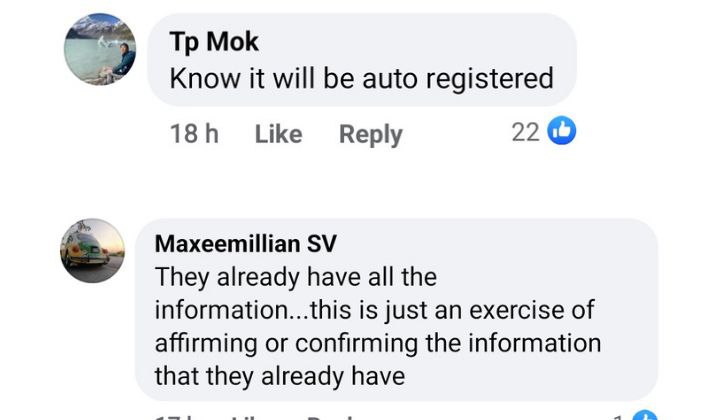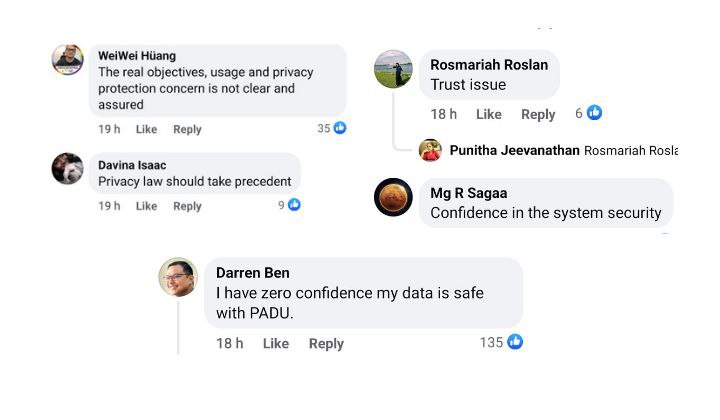PADU Registration Now Closed But Why Some Malaysians Refuse to Register?
Their concerns range from fears of automatic registration to issues surrounding privacy and the necessity of government aid and subsidies.

Subscribe to our FREE Newsletter, or Telegram and WhatsApp channels for the latest stories and updates.
In a bid to streamline government aid and subsidy distribution, Malaysia’s Central Database Hub (PADU) was established.
However, despite its potential benefits, a notable portion of the population remains hesitant to register.
The registration period has since ended yesterday, so we decided to ask our readers on Facebook on why they did not register.
Their concerns range from fears of automatic registration to issues surrounding privacy and the necessity of government aids and subsidies.
We found that some users believe that they will be automatically registered regardless of their actions.
This perception has led to a sense of apathy among some, as they feel that their registration is inevitable and see no need to actively engage in the process.
As a result, they express a lack of concern or motivation to complete the registration, viewing it as a futile or unnecessary task.

As announced by chief statistician Datuk Seri Mohd Uzir Mahidin, individuals who did not register on the PADU system will still have their basic data automatically entered into it.
Another significant factor contributing to the resistance is the perception among certain individuals that they do not require the aid or subsidies managed through PADU.
This group believes that they are financially stable enough to forego such assistance, making the registration process seem unnecessary or burdensome.

One of the primary concerns voiced by critics of PADU is the issue of data privacy.
There is apprehension that the centralization of personal data on PADU could lead to potential security breaches and unauthorized access.
In a time where data breaches are becoming increasingly common, many are hesitant to trust the government with their sensitive information.

Some individuals also express concerns about the potential for misuse of their data by government agencies.
There are fears that the data collected through PADU could be used for purposes beyond what was initially intended, such as surveillance or targeting of individuals based on their personal information.

Despite these concerns and resistance, the government continues to promote PADU as a key initiative in its efforts to modernize and improve government services.
According to The Star, Economy Minister Rafizi Ramli acknowledged that there have been challenges hindering registration for PADU. However, he assured the public that these issues would be resolved when PADU is reopened to the public.
He mentioned that PADU would be open for a period of two to three months once a year for people to update their data and for the introduction of new features.
Rafizi emphasized the need for PADU to be closed temporarily, stating that without the closure, there would be no definitive end to the process, impeding progress towards implementing targeted subsidies.
While PADU represents a significant step forward in the digitization of government services, it is not without its challenges and controversies.
The concerns raised by those who refuse to register for PADU highlight the importance of ensuring that data privacy and transparency are prioritized in its implementation.
Share your thoughts with us via TRP’s Facebook, Twitter, Instagram, or Threads.





